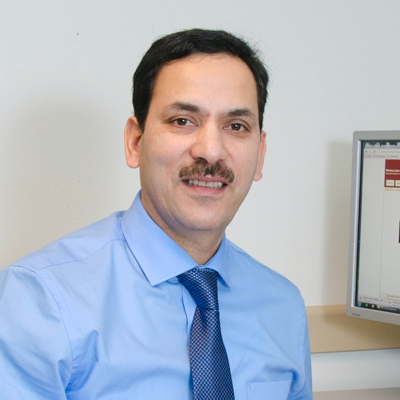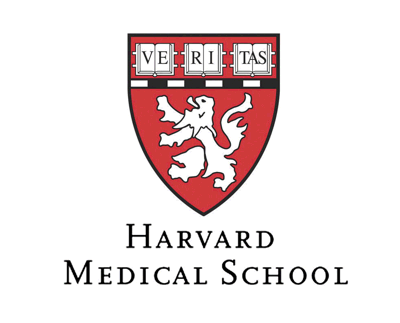Novel therapeutics for treating brain tumors rather than slowing their imminent harm
About 30,000 new patients are diagnosed each year with malignant tumor lesions in the brain, and most of these lesions remain untreated due to the complexity of the brain thereby effecting the quality of life for patients. Dr. Khalid Shah, of Massachusetts General Hospital and Harvard Medical School, focuses on the advancement of novel promising therapies for primary tumors in the brain as well as highly metastatic forms of tumors from the breast, lung, and melanomas that find their way to the brain. One major reason for the failure of numerous drugs to treat the tumors in the brain is the blood-brain-barrier that protects the entry of certain substances into the brain. Dr. Shah’s strategy to overcome this hurdle is to use stem cells that locally deliver certain substances into the brain or introduce the therapeutics via alternate routes that bypass the blood-brain-barrier. The development of these therapeutic interventions is essential for improving the overall survival of patients dealing with these deadly conditions.
Dr. Shah’s team capitalizes on their unique expertise in interdisciplinary research spanning stem cell and tumor cell biology, genetic engineering, and molecular imaging as well as their proven abilities to synthesize new insights from disparate fields, to lead interdisciplinary teams into new territory. In addition, while Dr. Shah’s research is deeply fundamental, there is always a translational aspect connected to it. As the leading cause of cancer-related deaths in children; second leading cause of cancer-related deaths in males ages 20-39; and the fifth leading cause of cancer-related deaths in females ages 20-39, the therapeutic options Dr. Shah and his team are developing will provide innovative and targeted therapies that are safe and effective to treat the large incidence of tumors.
Current research includes:
-
Clinically relevant Mouse Tumor Models: Dr. Shah’s team has created mouse models that replicate the clinical settings of primary (nodular and invasive) brain tumors and are currently creating metastatic brain tumor models from patient derived tumor cells.
-
Tumor Specific Therapeutic Agents: Dr. Shah’s team is focused on engineering stem cells that release tumor specific therapeutic proteins such as death receptor targeting TRAIL, EGFR targeting nanobody (ENb); the fusion of ENb-TRAIL targeting tumor cells and TSP-1 targeting CD36 receptor on tumor associated endothelial cells; tumor specific toxin, pseudomonas exotoxin (PE) and novel oncolytic herpes virus (oHSV) targeting both cell death and proliferation specifically in tumor cells.
-
Testing therapeutic efficacy of stem cell delivered therapeutics in clinically translatable models of primary, recurrent and metastatic brain tumors that mimic the clinical scenario of brain tumor aggressiveness, invasion, metastasis and resection.
- Non-invasive imaging techniques: Dr. Shah’s team utilizes non-invasive imaging techniques to follow the fate of tumors and therapeutic cells.
Bio
As a kid, Dr. Shah became interested in how living things “worked” at the molecular level and eventually kept his interests alive as he pursued his Masters and Ph.D. degrees in Genetic Engineering. At the end of his post-doctoral degree, Dr. Shah realized that despite the many influences and opportunities he had been given, from a young age, he was born to be a curious and scientifically driven individual.
Building upon his natural curiosities and orientation towards the sciences, Dr. Shah’s personal motivation for studying primary and metastatic brain tumors dates back to the years of his postdoctoral fellowship at MGH/Harvard Medical School. The poor prognosis of individuals at various stages of treatment for primary or metastatic brain tumors that was presented by the clinical fellows was disheartening. This frustration led him towards his quest for developing novel therapeutics to benefit brain tumor patients.
Aside from research, Dr. Shah started an organization called Education Initiative for developing countries where Dr. Shah and his team take bright children that do not have the means to stay in school and provide funds and mentorship for their educational careers. Dr. Shah has a firm belief in “unselfish mentoring” which he defines as mentoring that seeks to “bring up a new generation of people rather than getting something from the student”. In his free time, Dr. Shah also enjoys playing cricket on a professional mass league team, hiking, and exploring nature.
Website: shahmnil.mgh.harvard.edu
In the News
Smithsonian magazine May31, 2014
HSCI Science Update, May 16, 2014
BBC News, October 24, 2014
The Independent, October 27, 2014
Popular Science, October 27, 2014
Publications
Awards
Young Investigator Award, 2007
Alliance for Cancer Gene Therapy
Research Scholar Award, 2007
American Cancer Society
Science Initiative Award, 2010
James McDonald Foundation
Young Mentor Award, 2012
Harvard Medical School
Distinguished Research Award, 2014
Academy of Radiology Research


